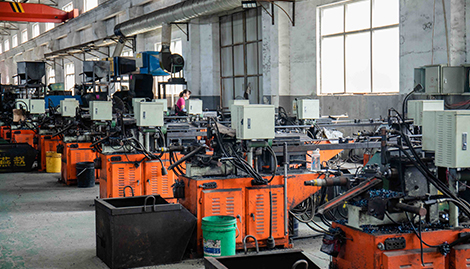oem lock wire bolts
Dec . 05, 2024 15:24 Back to list
oem lock wire bolts
The Importance of OEM Lock Wire Bolts in Engineering
In the realm of engineering, the reliability and safety of mechanical assemblies are paramount. One of the essential components in ensuring these attributes is the use of OEM (Original Equipment Manufacturer) lock wire bolts. These specialized fasteners play a crucial role in preventing parts from loosening due to vibrations, thermal expansion, and operational stresses. This article will delve into the significance, functionality, and applications of OEM lock wire bolts.
Understanding Lock Wire Bolts
Lock wire bolts are designed to secure two or more components together in a manner that mitigates the risk of loosening over time. The design typically includes a thread pattern that ensures a tight fit, while the use of lock wire provides an additional layer of security. During installation, a wire is threaded through holes in the bolt head and twisted tightly to lock it in place. This technique is particularly effective in high-vibration environments such as aerospace, automotive, and heavy machinery applications.
Applications in Various Industries
1. Aerospace In the aerospace sector, safety and reliability are non-negotiable. OEM lock wire bolts are extensively used for critical applications, such as securing engine components and structural elements of aircraft. The aerospace industry adheres to stringent regulations and standards, which necessitate the use of high-quality fasteners to ensure the safety of passengers and crew.
2. Automotive The automotive industry also relies heavily on lock wire bolts, particularly in areas such as engine assembly, suspension systems, and chassis connections. Given the constant vibrations experienced by vehicles during operation, using lock wire bolts can significantly enhance the longevity and reliability of automotive components.
3. Industrial Machinery In heavy machinery and industrial equipment, components are often subjected to extreme operational conditions. OEM lock wire bolts are designed to withstand these harsh environments, preventing loosening that can lead to equipment failure, safety hazards, and costly downtime.
oem lock wire bolts

Advantages of Using OEM Lock Wire Bolts
1. Enhanced Safety The primary advantage of using OEM lock wire bolts is the enhanced safety they provide. By securing components effectively, the risk of mechanical failure is significantly reduced, which is especially critical in industries where the consequences of failure can be catastrophic.
2. Cost-Efficiency Although OEM lock wire bolts might have a higher initial cost compared to standard fasteners, their ability to prevent loosening can save organizations money in the long run. Preventing premature wear and failure ensures lower maintenance costs and reduced downtime for repairs.
3. Versatility OEM lock wire bolts are available in various sizes and materials, making them suitable for a wide range of applications. Whether it’s the lightweight demands of aerospace or the robustness required in industrial machinery, there’s a lock wire bolt designed to meet those needs.
4. Ease of Installation Installing lock wire bolts is a straightforward process that does not require specialized tools, making them an attractive option for engineers and technicians alike. The simplicity of installation allows for quick repairs and adjustments when necessary.
Conclusion
OEM lock wire bolts are an integral component of many engineering projects, offering a reliable solution to the challenge of maintaining tight connections in the face of vibrations and stresses. Their applications span across multiple industries, ensuring safety and reliability in environments where failure is not an option. As engineering technologies continue to advance, the importance of using high-quality fasteners like lock wire bolts will only grow, highlighting the need for adherence to OEM standards in the manufacturing process. Investing in these specialized fasteners is not just a matter of compliance; it's a commitment to safety, efficiency, and long-term success in any engineering endeavor.
Latest news
-
High-Quality Panel Stud Bolt Reliable Panel Stud Bolt Factory & Suppliers
NewsJul.08,2025
-
High-Precision Fine Thread Locknuts Manufacturer & Supplier Custom Solutions
NewsJul.08,2025
-
PH Imperial Stud Bolt – High Strength Fasteners from Leading Supplier & Factory
NewsJul.07,2025
-
High-Quality Allen Wrench Bolts Leading Factory, Company & Suppliers
NewsJul.07,2025
-
Wholesale Ball Stud Bolt - High Quality Supplier & Factory Price Reliable Wholesale Ball Stud Bolt Company
NewsJul.06,2025
-
High-Strength Alloy Bolts Manufacturer & Supplier Quality Alloy Fasteners Factory
NewsJul.06,2025
